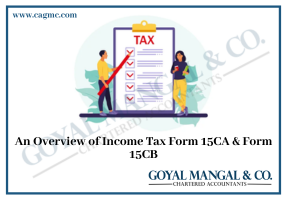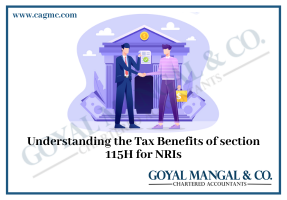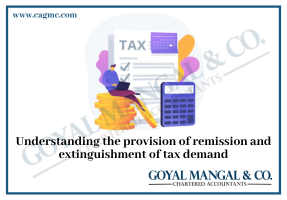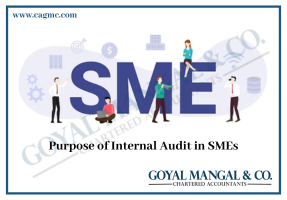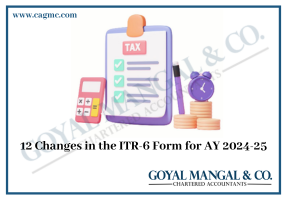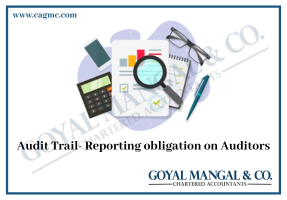
Trusts are widely recognized as important vehicles for managing assets, providing for beneficiaries, and contributing to charitable causes. While trusts offer various advantages, they also have certain obligations, including income tax assessment. In this article, we will explore the income tax assessment rules applicable to trusts for the assessment years 2022-2023 and 2023-2024, providing insights into the key provisions and requirements.
|
Table of Content |
What is Trust?
Trusts are legal arrangements where one party, known as the settlor or the author of the trust, transfers assets to another party, the trustee, to hold and manage for the benefit of a third party, known as the beneficiary. Trusts are established to ensure the efficient management and distribution of assets, provide for charitable purposes, protect the interests of beneficiaries, and facilitate estate planning.
Trusts are an integral part of the legal framework in India, serving as important vehicles for managing and safeguarding assets. The Indian Trust Act, 1882 provides the legal foundation for the establishment and administration of trusts in the country. Understanding the meaning of trust and the process of Trust Registration under this act is crucial for individuals and organizations seeking to create a trust for various purposes.
Types of Trust
The Indian Trust Act, 1882, serves as the cornerstone of trust law in the country, providing a comprehensive framework for the creation and administration of trusts. Under this act, various types of trusts are recognized, each catering to different needs and objectives. Following are some of the types of Trust are:
- Public Trusts: Public trusts are created for the benefit of the general public or a specific section thereof. These trusts are typically established for charitable, educational, religious, or public purposes. Public trusts aim to serve society by undertaking philanthropic activities, such as the advancement of education, relief of poverty, medical assistance, or the promotion of any other socially beneficial objective. Public trusts are subject to specific rules and regulations to ensure accountability and transparency in their operations.
- Private Trusts: Unlike public trusts, private trusts are created for the benefit of one or more individuals, known as beneficiaries. The main objective of a private trust is to secure and protect the interests of the beneficiaries and manage their assets. Private trusts can be created for various purposes, such as estate planning, wealth preservation, asset management, or providing for the welfare of family members. These trusts are customizable and offer flexibility in tailoring the trust terms according to the specific needs and objectives of the settlor (the person creating the trust).
- Charitable Trusts: Charitable trusts fall under the umbrella of public trusts and are created exclusively for charitable purposes. These trusts are established to promote philanthropy and the welfare of society. Charitable trusts can support causes such as education, healthcare, poverty alleviation, environmental conservation, and other charitable endeavours. To qualify as a charitable trust, the trust’s primary objective must be to serve the public interest, and its activities should not be directed towards benefiting specific individuals.
- Religious Trusts: Religious trusts are created to administer and manage properties and assets associated with religious institutions, such as temples, mosques, gurudwaras, or churches. These trusts are responsible for the maintenance, upkeep, and proper utilization of religious properties, managing religious ceremonies, and facilitating the welfare of the religious community. Religious trusts are governed by specific rules and customs in accordance with the particular religion or sect they represent.
- Educational Trusts: Educational trusts focus on promoting and advancing education. They are established to manage educational institutions, scholarship programs, research initiatives, and other educational activities. Educational trusts play a crucial role in fostering academic development, providing educational opportunities, and ensuring the smooth functioning of educational institutions. These trusts often aim to make education accessible to underprivileged sections of society.
- Implied Trusts: Implied trusts arise when the intention to create a trust is not explicitly stated but is implied by the circumstances or conduct of the parties involved. These trusts are established based on the presumed intent of the settlor and are recognized to prevent unjust enrichment or protect the rights of beneficiaries. Implied trusts can be categorized into resulting trusts and constructive trusts, each with its own set of legal principles and requirements.
- Business Trust: A Business Trust, also known as an income trust or an investment trust, is a legal structure that allows investors to pool their resources and invest in a portfolio of income-generating assets or business activities. It is a type of investment vehicle that combines features of both a trust and a business entity.
What do you mean by Tax Assessment of Trusts?
It is a process of examining and determining the income tax liability of a trust. It includes assessing the income earned by the trust at a specific period. Then evaluating the applicable tax based on the relevant tax laws and regulations.
When trust generates income from several sources likewise interest, capital gains, dividends, or rental income. It becomes significant to assess and report that income for tax purposes. The assessment takes into account the trust’s taxable income, exemptions, applicable tax rates, and allowable deductions.
There are various key elements involved in income tax assessment:
- Determining Trust Residency
- Examine Taxable Income
- Beneficiary Taxation
- Filing Requirements and Deadlines
- Tax Planning and Compliance
Income Tax Assessment of Trusts for A.Y. 2022-2023
As per the Income Tax Act, 1961 Trust is a significant institution. There are various provisions as per Income Tax Act, 1961 about Trusts. Some of them are:
- Section 115UA: It specifies the taxation of income received by an investment fund or specified by an entity.
- Charitable or Religious Trust (CRT): Under the act, Charitable or Religious Trusts means to specific kinds of trusts, which are formed for these purposes and qualify for tax benefits in India. These trusts are eligible for certain tax exemptions and deductions as per the provisions of the Income Tax Act, 1961.
- Section 11: Certain incomes of charitable or religious trusts in India are exempt from income tax. This section specifies provisions for the exemption of income derived from property held under trust for these purposes. Here are some of the exemptions given u/s 11 of the Income Tax Act, 1961:
- Income from the property: Section 11 exempts income derived from property held under the trust if it is used for charitable or religious purposes. This includes income from rent, lease, or capital gains arising from the sale of such property.
- Application of Income: To qualify for the exemptions under Section 11, the income earned by the trust must be applied towards the objects for which the trust is created. A minimum of 85% of the income derived from the property must be spent for charitable or religious purposes within the same financial year.
- Accumulation of Income: Charitable or religious trusts can accumulate income for future application towards their charitable or religious purposes. As per Section 11, income accumulated up to a maximum of 15% of the income from property held under trust is exempted.
- Specific Exemptions: In addition to the general exemptions mentioned above, Section 11 provides specific exemptions for certain types of income, such as:
- Income from voluntary contributions made to the trust for charitable or religious purposes.
- Income from investments made in government securities or certain specified funds.
- Income derived from property held under trust for a specific charitable or religious purpose.
It is important to note that certain conditions and restrictions must be met to claim these exemptions under Section 11. The trust must be registered under the Income Tax Act, and it must comply with the provisions related to the maintenance of accounts, audit, and reporting requirements.
Amendments in Income Tax Assessment of Trusts in AY 2023-24
Section 11 of the Income Tax Act, 1961 has been amended with the insertion of two new explanations. These explanations are deemed to have been inserted from April 1, 2021.
- Explanation 3A states that if a trust or institution holds property that includes a notified temple, mosque, gurdwara, church, or other places under Section 80G. Any voluntary contribution received for the renovation or repair of such a place may be treated as part of the trust or institution’s corpus. However, certain conditions must be met, including using the corpus only for the purpose for which the contribution was made, not using it for contributions or donations to any person, maintaining the corpus separately identifiable, and investing or depositing the corpus as specified under Section 11(5).
- Explanation 3B further clarifies that if a trust or institution violates any of the conditions specified in Explanation 3A. Then any sum treated as part of the corpus shall be deemed as income of the trust or institution in the previous year when the violation occurs.
- Section 12A has been amended, specifically sub-section (1), where clause (b) has been substituted. The new clause requires trusts or institutions to keep and maintain their books of account and other documents in the prescribed form and manner. At a prescribed place if their total income, computed without considering the provisions of Sections 11 and 12, exceeds the maximum non-taxable amount in any previous year.
Furthermore, the accounts of the trust or institution must be audited by a defined accountant before the specified date under Section 44AB, and the audit report must be furnished in the prescribed form, signed and verified by the accountant, and include the required particulars.
These amendments introduce new explanations under Section 11. That allows trusts or institutions to treat voluntary contributions for the renovation or repair of notified places as part of their corpus, subject to certain conditions. They also modify the requirements for maintaining books of account and conducting audits for trusts or institutions under Section 12A.
Amendments as per Finance Act, 2023
As per Finance Act, 2023, there are various major amendments have been accomplished to the CRT. These amendments are applicable from the 1st of April 2023. These amendments are:
- Section 11(1) (explanation 1 of this section)- In case CRT fails to put a minimum of 85% of its income for CRT purposes, then it will have two options:
- In the previous year (PY), when income is received or the next PY in that it is received; or
- to apply the similar in the PY, in case income is obtained at the year.
- Though to perform such an option the CTR needs to be filed on Form 9A. Previously, the last date of filing this form as specified in Section 139(1) for filing the ROI, which is 31st Oct. of the AY. After the 1st April 2023 amendment has been done, the due date of performing these options with Form 9 will be minimum 2 months before the due date of Income return filing i.e., 31st August of the AY.
- Section 11(1) (explanation 4 of this section): The corpus donation is not considered as Trust income. Thus, in case any application in the name of a corpus, will not be considered as an application for evaluation 85% limit. Meanwhile, the amount will deposit back into the corpus and considered as funds applied to the extent of the deposit back.
- Section 11(7)- (Applicable w.e.f. 1st April 2024). FA 23 has added section 10 (46A), and CRT is permitted to avail of exemption of this new clause.
Clause 46A- It specifies that income generated from trust, board, commission, or central etc. that has been set by the state or central government for the merit of the general public will be exempt from income tax. - Section 12A (1) (ba)- FA 23 in the case of CRT is that a condition to avail exemption was ROI had to be filled as per time allowed according to section 139(1). Meanwhile, now even in case a return has been filed late, then within the time permitted as per section 139(4), still there will be an exemption available u/s 11.
- Section 12A (2)- It has removed certain benefits for CRTs. Specifically, the second, third, and fourth provisos of this subsection have been omitted. Previously, if a CRT applied for registration in a specific year and had ongoing assessment proceedings for preceding years, it could still enjoy the benefits of Section 11 for the years under assessment.However, this benefit is no longer available under the amended provisions. The objectives of the CRT must remain consistent between the relevant years. This change in the law has resulted in the loss of this particular benefit for CRTs.
- Section 12AB (4)- It involves an explanation, which provides violations. If CRT commits any of these violations, the tax department has the authority to cancel its registration. The recent amendment to this section adds a new item to the list of violations. It states that if, while applying for registration under Section 12A (1) (ac), the CRT provides incomplete or false information, the department may cancel the registration.
Tax on Unnamed Donations
If an anonymous donation is included in the total amount of the assessee, the following income tax will be due:
- Tax of 30% will be applied to any anonymous donations that exceed one of the following thresholds:
- 5% of all donations verified by inspection, or
- One Lakh Rupees: and
- The tax that the assessee would have had to pay if his total income had been reduced by the aggregate of anonymous donations received in excess of the amount specified in (A) or (B), as applicable.
Takeaway
Trusts play a significant role in wealth management and charitable activities, but they also have important income tax implications. It is crucial for trustees and beneficiaries to understand the provisions and requirements for income tax assessment of trusts. By keeping abreast of the latest developments, complying with the reporting obligations, and utilizing tax planning strategies, trustees can ensure efficient and compliant management of trust assets while optimizing tax benefits for the beneficiaries.

